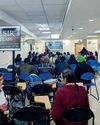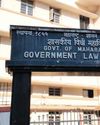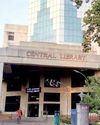
New medical colleges are being approved or opened every other month but this expansion is coming hand-in-hand with a crisis - shortage of teachers.
According to doctors' professional bodies, teachers and healthcare organisations, this has negatively impacted the quality of medical education and has serious implications for the public health system in the long term.
"Due to shortage of faculties, we are producing a factory of young doctors who are under-skilled. It is the right of patients to get the best medical care but this will be compromised. This will happen because we are focusing on quantity rather than quality of doctors being produced in our country," Dr.Shankul Dwivedi, member of standing committee of Indian Medical Association (IMA) junior doctors' network told Careers360.
Those connected to medical education say that efforts are being made to increase undergraduate and postgraduate medical seats but little has been done to ensure they have teachers.
Years-long recruitment process at medical colleges, reservation roster in appointing specialist medical officers as assistant professors, extension of retirement age and reappointment of old teachers in medical colleges are among the reasons leading to faculty shortage.
'Unplanned' increase
The shortage is due to a "delayed and tiring" recruitment process, said Dr.Abhishek Shankar, associate professor, department of Radiation Oncology of AIIMS, Patna. There are enough doctors who would be willing to teach but low salary, job insecurity and a hiring process that literally lasts years are keeping them away. According to government data, the total number of medical colleges rose by over a third from 2013-14 to 2022-23 (See Table).
Growth Story
This story is from the {{IssueName}} edition of {{MagazineName}}.
Start your 7-day Magzter GOLD free trial to access thousands of curated premium stories, and 9,000+ magazines and newspapers.
Already a subscriber ? Sign In
This story is from the {{IssueName}} edition of {{MagazineName}}.
Start your 7-day Magzter GOLD free trial to access thousands of curated premium stories, and 9,000+ magazines and newspapers.
Already a subscriber? Sign In

Sleeper Cells: Law schools' 'dormant' legal aid clinics
A law college survey by the Supreme Court's policy centre found that a worrying number of legal aid clinics do little more than hold legal awareness camps, despite NALSA, BCI rules. This leaves gaps in legal education

Law's new niche frontiers
How niche law programmes are blending science with legal expertise, transforming legal education and creating specialised career paths

'GP Sir's classes' a ray of hope for the poor
Shrishti (name changed), 31, hails from the Valmiki community based in Gurdaspur, Punjab; she was born into a family of safai karamcharis - cleaners and at 21, married into another.

DU Law Faculty is part of CLAT 2025 but plans own exam: Dean
Delhi University's Faculty of Law will admit to its BBA LLB and BA LLB courses through the CLAT exam this year.

Studying law through films, novels, comics
Law schools are using various art forms - films, comics, theatre, puppetry

Legal education meets AI
As artificial intelligence reshapes industries, India’s leading law schools are introducing specialised courses and research initiatives, often in collaboration with technical institutions. But the need for comprehensive regulations persists

A LEGACY IN CRISIS
Asia's oldest law college and alma mater to legal luminaries, Government Law College, Mumbai, now grapples with declining standards, administrative apathy, and students' shifting educational aspirations

Law Colleges for 2025
Careers360 has ranked 100 law colleges and rated over 185 institutions, categorising them into distinct zones and states, for a comprehensive overview of legal education

IIT Madras introduces another quota
After admitting five students via the sports quota in 2024-25 - a first among the IITs Indian Institute of Technology Madras has now introduced another quota for \"fine arts and culture excellence\".

CLAT answer keys and court cases
Many Common Law Admission Test (CLAT) candidates claimed to find mistakes in its provisional and final answer keys.